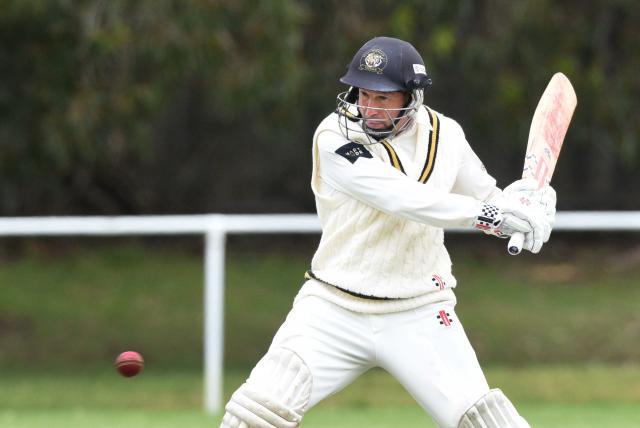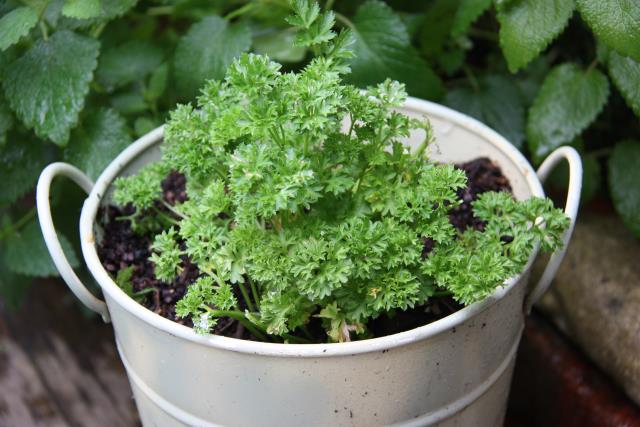Yet another fighting half-century from Beaconsfield’s Mark Cooper has given his Tigers a glimmer of hope against Berwick, but his Tigers are up against it yet again after the first day of play at Berwick.
Play was delayed by nearly 90 minutes due to concerns over the safety of the playing surface, with the extra time in the sun before play allowing for the absorption of moisture.
Sent in by Jarrod Goodes, Cooper was up for the challenge, welcoming the heat of the contest with typical determination and resolve.
Anything on a straight line to the left-hander was punished with whips off his pads, while width outside the off stump was attacked, a handful of boundaries in the early overs belying concerns over the pitch, despite Berwick deploying a fielder under the lid at short leg.
Cooper described his innings as one of the most challenging he’s endured this season, with the plan of attack evolving throughout the stay.
“(The approach was) trying to read the situation and trying to work out what the best plan was,” Copper said.
“I think it was, to try and score, and put them at least under some scoreboard pressure, in case we did lose some early wickets, at least we’re not under too much pressure, if we’re still scoring.
“In those conditions, if a bowler is allowed to bowl on a spot, they dominate the day.
“I think that was a little bit of the mindset out there; if you got a good one, you got a good one, and if you didn’t, then could you score or at least attempt to score, was the mindset.”
Cooper lost his opening partner in Tyler Clark and number three Yohan Arumadura in the space of one Corey Bevan over, the Tigers slipping from 0/34 to 2/34 in the blink of an eye.
Ashan Madhushanka joined Cooper to get the Tigers through to the tea-break, part of a 58-run partnership before Cooper’s innings came to an end on 62, the first of Mitch Shirt’s four victims.
Shirt made the Beaconsfield middle order his own, taking the wickets of Madhushanka (33), Kevin Seth (eight) and Jesse Busacca (zero) in a lethal spell of 4/16.
Wicketkeeper Michael Dunstan offered an important 33 late in the card as the Tigers reached 188, bowled in the 68th and final available over of the innings, due to the late start to play.
Berwick will have 68 overs to chase 189 next week.
“Because we’re a developing team, you don’t really want to have scoreboard pressure on top of what their mindset might be when they’re trying to go out there and implement their own game plan,” Cooper said.
“Once we saw the conditions after we lost the toss and then it was reduced to 68 overs, and knowing we lost a couple of early wickets with Tyler (Clark) and Yohan (Arumadura), you would have taken 188 at the end of the day, for sure.
“Whether that’s enough when they have probably better conditions next week, we’ll have to wait and see, but I never really set par scores throughout the season.”
The Tigers will need to bowl at their best to have any chance at securing a third win for the year, which would do their chances of avoiding relegation back to Turf 2, wonders.
The relegation battle is not the be-all and end-all for Cooper and his side, but will form an element of the assessment criteria when reviewing the season upon its completion.
Cooper and his bowling attack had some success earlier in the season against the Bears in a rain-affected One Day contest, which will act as an element of inspiration for the young attack, feeling the pinch of a gruelling season in the competition’s top flight.
“I think the longevity of the season and the effort you have to put in each training session, and on game day, and I think the stress or anxiety of competing and overall enormity of it, is quite draining, especially for a young team,” Cooper said.
“To be given those challenging conditions on the weekend, I didn’t know how we were going to respond, to be honest.
“I think we held in there and then hopefully that gives us a little bit of a push to keep working towards the end of the season, in terms of finishing off the Turf 1 season.
“Having two wins and being in the game for a couple of those games, when little things could have gone our way or we had a bit more game sense, a bit of luck might have gone our way and we might have ended up with four wins for the season, which overall would have looked alright on the ladder, as well as compared to other teams.
“There’s a lot of variables there, but just staying up is a big achievement, and then getting the development and game time into players is really valuable.
“It’s what you do with that, though, which is the next step; you can pat yourself on the back for staying up, but it’s only a small step of the journey if you’re looking at that perspective.
“It’s now, what’s the next step, once we finish the season, however that finishes off. What did we learn from it? How do we set up better to be more competitive the following year? I think is really important.”







